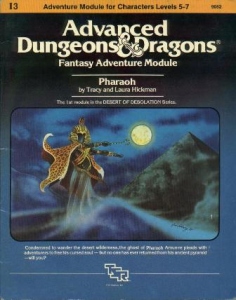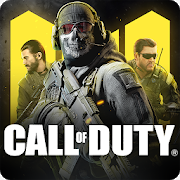
Q*bert is an arcade video game developed and published for the North American market by Gottlieb in 1982. It is a 2D action game with puzzle elements that uses isometric graphics to create a pseudo-3D effect. The objective of each level in the game is to change every cube in a pyramid to a target color by making Q*bert, the on-screen character, hop on top of the cube while avoiding obstacles and enemies. Players use a joystick to control the character.

The Egyptian pyramids are ancient masonry structures located in Egypt. Sources cite at least 118 identified "Egyptian" pyramids. Approximately 80 pyramids were built within the Kingdom of Kush, now located in the modern country of Sudan. Of those located in modern Egypt, most were built as tombs for the country's pharaohs and their consorts during the Old and Middle Kingdom periods.

A mobile game is a video game that is typically played on a mobile phone. The term also refers to all games that are played on any portable device, including from mobile phone, tablet, PDA to handheld game console, portable media player or graphing calculator, with and without network availability. The earliest known game on a mobile phone was a Tetris variant on the Hagenuk MT-2000 device from 1994.
A Tale in the Desert (ATITD) is a massively multiplayer online roleplaying game (MMORPG) set in Ancient Egypt. The initial software download and all new content are free, with a monthly subscription required to play beyond the first 24 hours.

Might and Magic V: Darkside of Xeen is a science fantasy role-playing video game published and developed for multiple platforms by New World Computing in 1993. Based on the Might and Magic III: Isles of Terra game engine, it is the fifth game in the Might and Magic series, and is a direct sequel to Might and Magic IV: Clouds of Xeen, concluding the story arc started in the original Might and Magic Book One: The Secret of the Inner Sanctum.

International Game Technology (IGT) was a former American gaming company based in Las Vegas that manufactured and distributed slot machines and other gambling technology. It was acquired in 2015 by GTECH for $6.4 billion, which then adopted the IGT name.

The Giza pyramid complex in Egypt is home to the Great Pyramid, the Pyramid of Khafre, and the Pyramid of Menkaure, along with their associated pyramid complexes and the Great Sphinx. All were built during the Fourth Dynasty of the Old Kingdom of ancient Egypt, between c. 2600 – c. 2500 BC. The site also includes several temples, cemeteries, and the remains of a workers' village.

Pharaoh is an isometric city-building game released in November 1999. It was created by Impressions Games and published by Sierra Studios for Microsoft Windows. Using the same game engine and principles of Caesar III, it is the first such game in Sierra's City Building series to focus on another civilization of ancient times. Players oversee the construction and management of cities and settlements in Ancient Egypt, micro-managing every aspect of the city to ensure citizens are fed, employed, healthy and protected from diseases, disasters and wars. An expansion pack, Cleopatra: Queen of the Nile, was released in 2000, developed by BreakAway Games. In 2001, both the game and expansion pack were bundled together as Pharaoh Gold. A remake titled Pharaoh: A New Era was released by Triskell Interactive and Dotemu in 2023.

Khet is a chess-like abstract strategy board game that uses lasers, and was formerly known as Deflexion. Players take turns moving Egyptian-themed pieces around the playing field, firing their low-powered laser diode after each move. Most of the pieces are mirrored on one or more sides, allowing the players to alter the path of the laser through the playing field. When a piece is struck by a laser on a non-mirrored side, it is eliminated from the game.

Pharaoh's Tomb is an MS-DOS platform game created by George Broussard and published by Apogee Software.

The Valley of the Pharaohs is a role-playing game published by Palladium Books in 1983 that is set in Ancient Egypt. Several reviewers found the historical material was valuable, but that there was not enough information about how role-playing could connect with the historical background in a meaningful way.

Pharaoh is an adventure module for the Dungeons & Dragons fantasy role-playing game. The module was published in 1982 by TSR, Inc. for the first edition Advanced Dungeons & Dragons rules. It formed the first of the three-part Desert of Desolation module series. The module was written by Tracy and Laura Hickman; Tracy Hickman would later go on to help create the Dragonlance campaign setting.
Playphone is a mobile gaming platform founded in 2003 headquartered in San Jose, California that provides direct-to-consumer mobile content distribution. It is funded by Menlo Ventures, Cardinal Venture Capital, and Coral Capital Management, and is a subsidiary of GungHo Online Entertainment.
Catan Historical Scenarios I: Alexander and Cheops is the first of two Historical Scenario expansions to the Catan board game, distributed by Kosmos in Germany in 1998 and redistributed with rules translations in various other territories. The Historical Scenarios put the players in historical settings, while maintaining the Catan game mechanics. The Historical Scenarios are generally considered to be the forerunners to the later Catan Histories series of board games, though the latter are fully independent games with their own game parts.

Cellufun, also known as Tylted, is a social gaming community available on mobile devices. Users create avatars to represent themselves. It blends chat and a large catalog of social games.

IGG Inc. is a Chinese video game developer and publisher. The company was founded in 2006 in Fuzhou, Fujian, China. IGG is now headquartered in Singapore, namely "IGG Singapore Pte. Ltd.", since 2009 and has branches in China, the United States, Canada, Japan, South Korea, Belarus, Thailand, Philippines and Hong Kong.

Call of Duty: Mobile is a 2019 first-person shooter video game developed by TiMi Studio Group and published by Activision for Android and iOS. Released as a free-to-play title, it was one of the largest mobile game launches in history, generating over US$480 million with 270 million downloads within a year. Call of Duty: Mobile was published in other regions by Garena, Tencent Games, VNG Corporation and TiMi Studio Group.

TiMi Studio Group, a subsidiary of Tencent Games, is a video game development studio group headquartered in Shenzhen, China and offices in Singapore, Montréal, Seattle, Los Angeles, Chengdu, and Shanghai. TiMi generated an estimated revenue of $10 billion USD in 2020. Reportedly, TiMi is the largest video game operator and developer in the world by revenue. Founded in 2008 as Jade Studio, TiMi comprises several development divisions with different areas of expertise and develops games in different genres for PC, mobile, and Nintendo Switch, including Honor of Kings, Arena of Valor, Call of Duty: Mobile, Speed Drifters, and Pokémon Unite.
Pyramid: Challenge of the Pharaoh's Dream is a 1996 education adventure game for Windows and Macintosh developed by Knowledge Adventure and published by Edusoft SA, published in Sweden by Knowledge Adventure and Levande Böcker.

Pharaoh: A New Era is a city-building video game designed by Triskell Interactive and published by Dotemu. It is a remake of Pharaoh (1999).
















